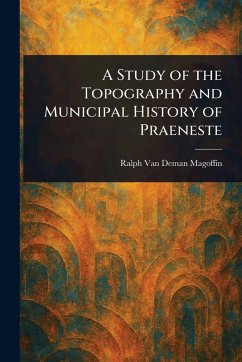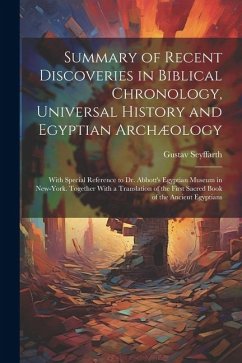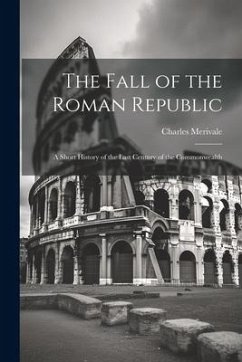
A Handbook For The Study Of Roman History, To Accompany Abbott's Short History Of Rome

PAYBACK Punkte
8 °P sammeln!
A Handbook for the Study of Roman History is designed to accompany Abbott's Short History of Rome. It provides students with study questions and references to primary source material. This handbook serves as a valuable guide for those delving into the complexities of Roman civilization. It offers a structured approach to understanding the key events, figures, and cultural developments that shaped the Roman world. Students and enthusiasts of Roman history will find this handbook an indispensable tool for enriching their knowledge and appreciation of Rome's enduring legacy. This work has been se...
A Handbook for the Study of Roman History is designed to accompany Abbott's Short History of Rome. It provides students with study questions and references to primary source material. This handbook serves as a valuable guide for those delving into the complexities of Roman civilization. It offers a structured approach to understanding the key events, figures, and cultural developments that shaped the Roman world. Students and enthusiasts of Roman history will find this handbook an indispensable tool for enriching their knowledge and appreciation of Rome's enduring legacy. This work has been selected by scholars as being culturally important, and is part of the knowledge base of civilization as we know it. This work was reproduced from the original artifact, and remains as true to the original work as possible. Therefore, you will see the original copyright references, library stamps (as most of these works have been housed in our most important libraries around the world), and other notations in the work. This work is in the public domain in the United States of America, and possibly other nations. Within the United States, you may freely copy and distribute this work, as no entity (individual or corporate) has a copyright on the body of the work. As a reproduction of a historical artifact, this work may contain missing or blurred pages, poor pictures, errant marks, etc. Scholars believe, and we concur, that this work is important enough to be preserved, reproduced, and made generally available to the public. We appreciate your support of the preservation process, and thank you for being an important part of keeping this knowledge alive and relevant.












